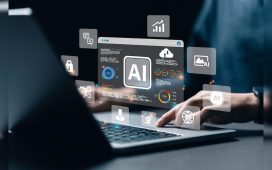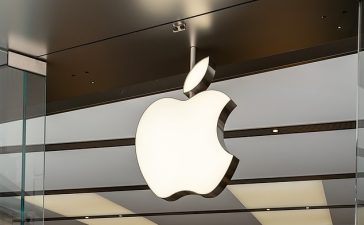
Artificial Intelligence, particularly generative AI, has created a storm in the world of technology and is today one of the most widely debated topics. Its development has impacted the discourses around technology, business, education and most importantly, the future of mankind. Its capabilities are immense and a mindful and creative application of AI and its generative version will be pivotal as technology leaders look to stay ahead of the curve and leverage digitalization. ETCIO spoke to Andrew Ng, thought leader in the space of artificial intelligence and machine learning . The maverick AI authority has donned several hats during his career. He is the founder of Deep Learning AI, managing General Partner of AI Fund and founder and CEO of Landing AI, besides being a Stanford University professor. He is also the co-founder of Coursera and the founding lead of Google Brain. Excerpts from the interview: What is the current state of AI, particularly the generative AI version? What are some of the latest developments and what could be the future course of its development?
One of the best things about AI is that it is a general purpose technology, so it’s not useful for only one thing. It’s useful for a lot of different applications. It is like electricity. If somebody asks you what is electricity good for? It’s always hard to answer because it’s useful for so many things. Having said that, I want to add that because of the tremendous developments in Generative AI, the technology has taken significant steps forward. It also means that exciting work remains ahead of all of us and we need to figure out ways to use this new technology and apply it across verticals and industries such as healthcare, financial services, education, etc. The fact that it is by nature a general purpose technology means that a lot of opportunities are ahead of us.What do you make of the buzz around generative AI after the release of ChatGPT? Do you think it’s all genuine and not a hope?
AI and GenAI will create and is starting to create and will create much more future business value. The ability to do tasks that computers were not able to do just a couple years ago is tremendous. So, there will be a lot of projects that would create a lot of value. I feel hype is often a function of a societal perception that’s hard to predict, but the business fundamentals underlying the excitement is definitely real. I don’t think I’m an expert on what’s an appropriate level of hype, but as someone that works in AI, I’m certainly very excited when I look at the number of projects we can now do in AI that can create a lot of value for people, for businesses, for society. There are a lot more opportunities than there are people working on them. Technology evolves. There is a period of churn during which technology continuously gets refined and eventually reaches a level of excellence and sophistication. With the evolution of AI, how do you think it can help businesses move towards Industry 4.0. What could be some of the real world applications and use cases of AI, including Generative AI?
I’m seeing AI being used by financial institutions (to model loans, underwriting), and by healthcare and education sectors. There are courses about this on Coursera, which are genuinely useful for learners. If you have a company with tens of thousands of employees, how do you figure out use cases? Where are the opportunities for you to apply or adapt this technology for your use cases? I think all knowledge workers can get a productivity boost by using Generative AI applications like ChatGPT, Claude or Gemini. I also feel that the knowledge workers will need a bit of training in order to use generative AI safely and effectively. Beyond that, there’s a lot of value to be created in terms of how to automate or augment specific tasks in your business.
And people are interested in this domain. During the past year, the fastest growing course on Coursera was a new course that I launched. It is called Generative AI for everyone and it attempts to provide a broad training on how knowledge workers can get a meaningful productivity boost by learning to use Generative AI safely and effectively. This is a question that may have been posed to you many times. There is this apprehension across the world that AI would replace human beings and with the coming of all these technologies human beings would find themselves out of jobs. As AI undergoes refinements and matures, do you think that there would be a point in the future where people would have nothing to do?
AI is automating jobs. I think of jobs as bundles of tasks. For example, a radiologist will conduct a radiology examination, provide consultation for patients, mentor younger doctors, so on and so forth. One radiologist actually has a lot of different tasks and it turns out that some of the tasks are amenable to automation augmentation and there are others that are really difficult for AI to automate. When we analyze different businesses, 20-30 percent of a job may have a high potential for AI augmentation or automation. This means that you could get a productivity boost, but also that there’s still 70 percent of that person’s job for which you still need people. AI would create a lot of productivity improvements and business efficiency. But most people’s jobs will be safe except that people that use AI will replace people that don’t use AI. There’s a very small minority of jobs in which all tasks can be automated. So, a small number of jobs will go away. I don’t want to diminish the suffering or the difficulties of people whose jobs go away. The number of jobs that will completely go away is probably less than what most people are worry about.
Which is that one area of artificial intelligence and generative AI that excites you the most?
I’m excited about multiple things. But maybe one that I want to highlight is agentic AI workflows. And here’s the idea. The way most of us use chatGPT, Claude or Gemini is through prompting. Say, I ask somebody to just type out a program, without using backspaces. I can’t code like that. But if we ask Generative AI algorithms to do this, they are surprisingly good at this. The way people write text or code is through an iterative process. Write a first draft and then read that and see where the gaps are. Do a web search, edit our draft, so on and so forth. We call them agentic workflows. So, instead of asking the LLM model or AI to just type everything from start to finish, we have it write a first draft, read its own first draft, critique that, maybe run a test on it or a web search and revise the draft. Instead of a linear start to finish process, it’s an iterative process. This type of agentic workflow is significantly enlarging the set of tasks we can now do with AI. What are some of the best practices? How do we use agentic workflows to do much more complex tasks? That is the next problem to crack.
There are all kinds of organizations, particularly the legacy ones. How can they leverage this technology? How do they ensure that something as critical as AI or generative AI is easy to incorporate into their systems? How do they develop a robust technology blueprint which would make it easier for them to incorporate elements of diverse technologies?
I tend to give businesses two pieces of advice. One is that all knowledge workers are provided a little bit of AI training so that they can use it safely, responsibly and effectively. And the second is task based analysis, which is a really effective recipe for identifying opportunities. We often work with our investors to flesh out ideas and build them. There is a need to look at a lot of data for large-scale automated task based analysis to identify the best opportunities for business value creation. This would help them understand the tasks on which most employees are actually spending time on and how they can use GenAI to help them create more business value. There needs to be a proper plan for adopting generative AI.












